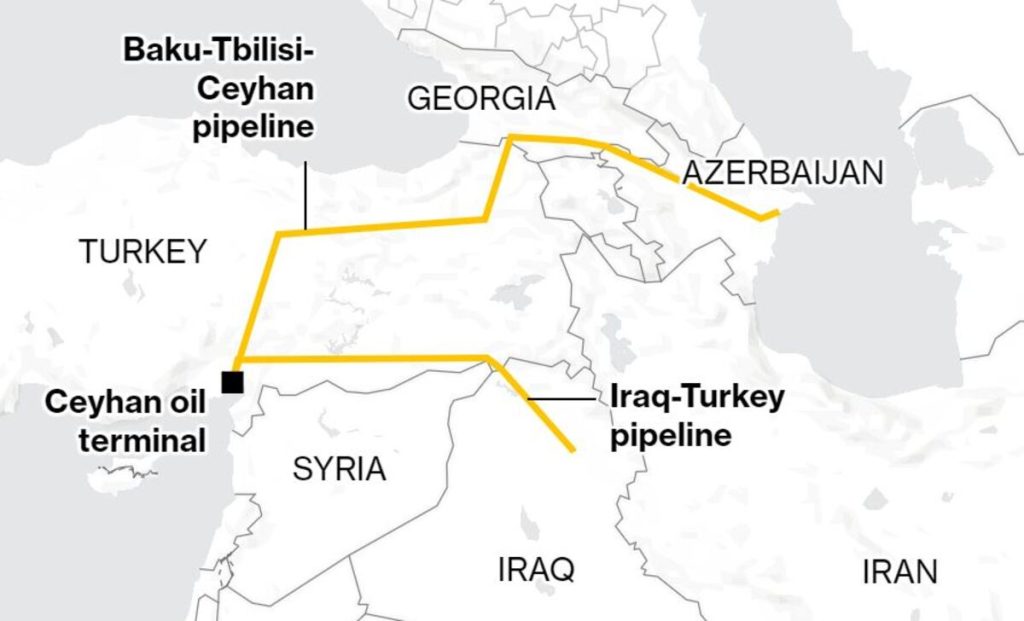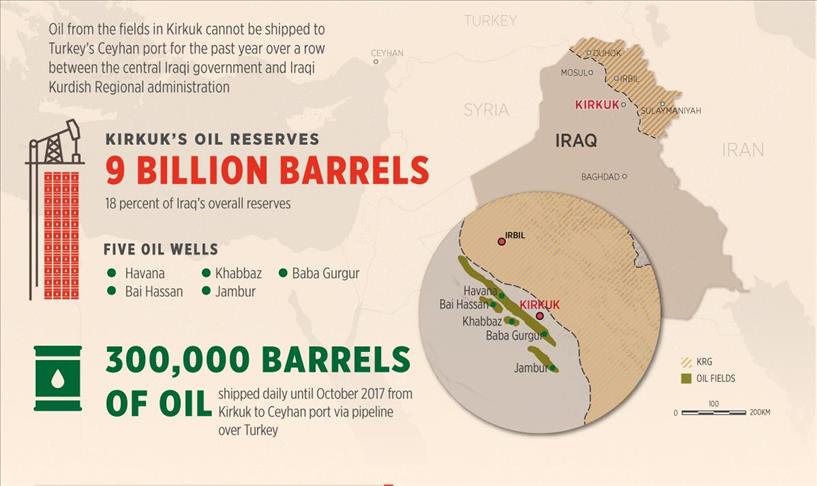The political stalemate between Turkey and Iraq, with regards to the release of Iraqi Kurdish oil via the Turkish Port of Ceyhan, still continues. Discussions have been held between Turkey’s foreign and energy ministers and the head of the Iraqi Kurdish regional government (KRG), largely trying to find a solution to the current Turkish blockade of KRG oil exports via a pipeline to the Turkish port of Ceyhan. Ankara stopped the flow of KRG oil to Ceyhan on March 25, after it lost an arbitration case brought by Iraq, as Baghdad regards KRG oil exports via Turkey’s Ceyhan as illegal. The Iraqi minister of oil Hayan Abdulghani has been this week in Ankara to discuss a solution but no common ground was found to restart pipeline exports.

After the meetings between Ankara and Baghdad, KRG’s Prime Minister Masrour Barzani met Turkey’s Foreign Minister Hakan Fidan and Energy Minister Alparslan Bayraktar in Erbil. No information however has been given if a deal between Erbil and Ankara was reached, as Baghdad will have a major say in the total endeavor. The future of the Kirkuk-Ceyhan oil pipeline is still unclear.
As stated by Turkish officials, Ankara wants Baghdad to pay the $1.5 billion arbitration fine to be paid by the KRG. While the fine is hefty, Ankara is currently confronted by a loss of around $1 billion per year in revenues from the Kirkuk-Ceyhan pipeline. However, Ankara understands also that Baghdad is losing even more per year in oil revenues that are currently unavailable.

Turkey’s foreign minister Hakan Fidan while visiting Baghdad and Erbil on 22-23 August met with Iraqi prime minister Mohammed Shia al-Sudani and other Iraqi and Kurdish officials. The pipeline closure by Turkey has been discussed, but no solution to it was reached. Without stating the obvious, both sides understand that only a full-scale political agreement can solve the issue, as not only it involves KRG oil and gas volumes but also the role of Baghdad vs KRG or Baghdad vs Turkey in general. For the Turkish government at the same time other major issues are to be solved, such as the role of the KRG in allowing Turkish Kurdish extremist group PKK to have a base, which is a major thorn in the eyes of Ankara. Iraq however has also a major issue still pending, which is the extremely low water flows in the Euphrates and Tigris, largely caused by major water works and dams on the Turkish side.
The current closure of the Kirkuk-Ceyhan oil pipeline is shutting in around 400,000 bpd of crude exports controlled by the Kurdistan Regional Government (KRG) and 70,000 bpd marketed by the federal Iraqi government. The international arbitration case that Ankara has lost states that Turkey had breached a bilateral agreement by allowing Iraqi Kurdish crude to be exported without Baghdad’s consent. Ankara officially is still stating that the pipeline has been shut due to the effects of the major earthquakes this year. Officially it is however clear that Ankara doesn’t want to pay the $1.47 billion compensation to Baghdad as ordered by the arbitration.
A re-opening of the Kirkuk-Ceyhan pipeline will not lead to a major addition to the global oil markets, as Iraq is currently above its OPEC quota already. Last figures have shown that Iraq produces around 70,000 bpd above the set quota levels. A reopening of the Ceyhan outlet, possibly bringing additional volumes from the KRG region, would need to be mitigated by lower production and exports in other Iraqi producing regions. For Baghdad that is a difficult position it will not admit in public.
Baghdad is also not really very hard hit by the current blockade, as the overwhelming majority of revenues would have gone to the KRG. Baghdad at present is even redistributing part of the still ongoing Kirkuk production to be refined at the Salah al Din refineries in the south of the country. The KRG is currently loosing around $700 million per month in revenues.
Behind all the current oil noise another main issue is still at play, the semi-autonomous position of the KRG. Turkey, Iran and Baghdad are not happy to have a stronger KRG on their borders or even inside the country. Iran is pushing for a more harder position of Baghdad against KRG and perceived support of Erbil of Iranian Kurdish opposition groups. Turkey is holding the same position, but than mainly targeting the Kurdish extremists of the PKK. Geopolitical power plays and internal factions are playing their own role too.
